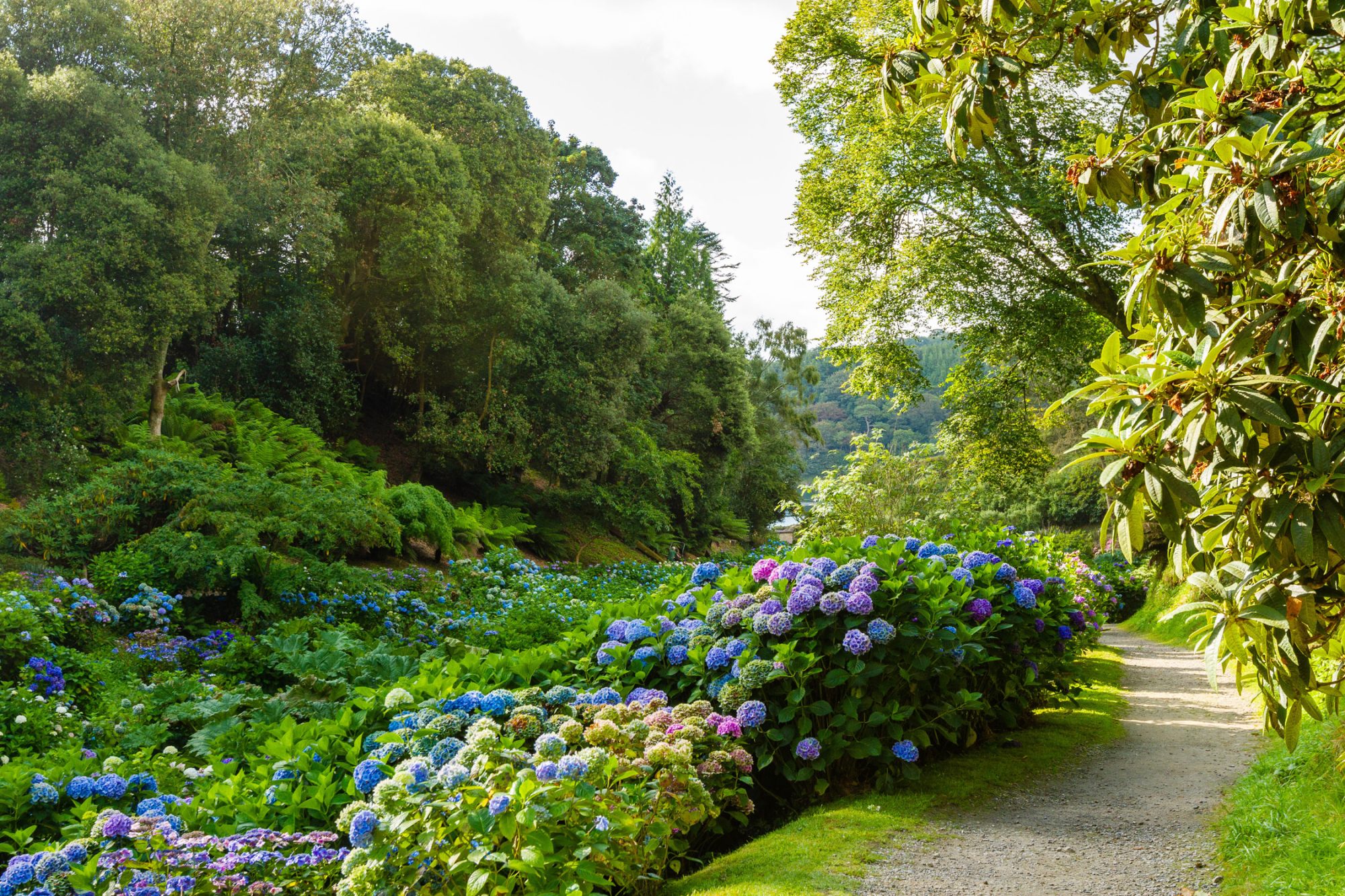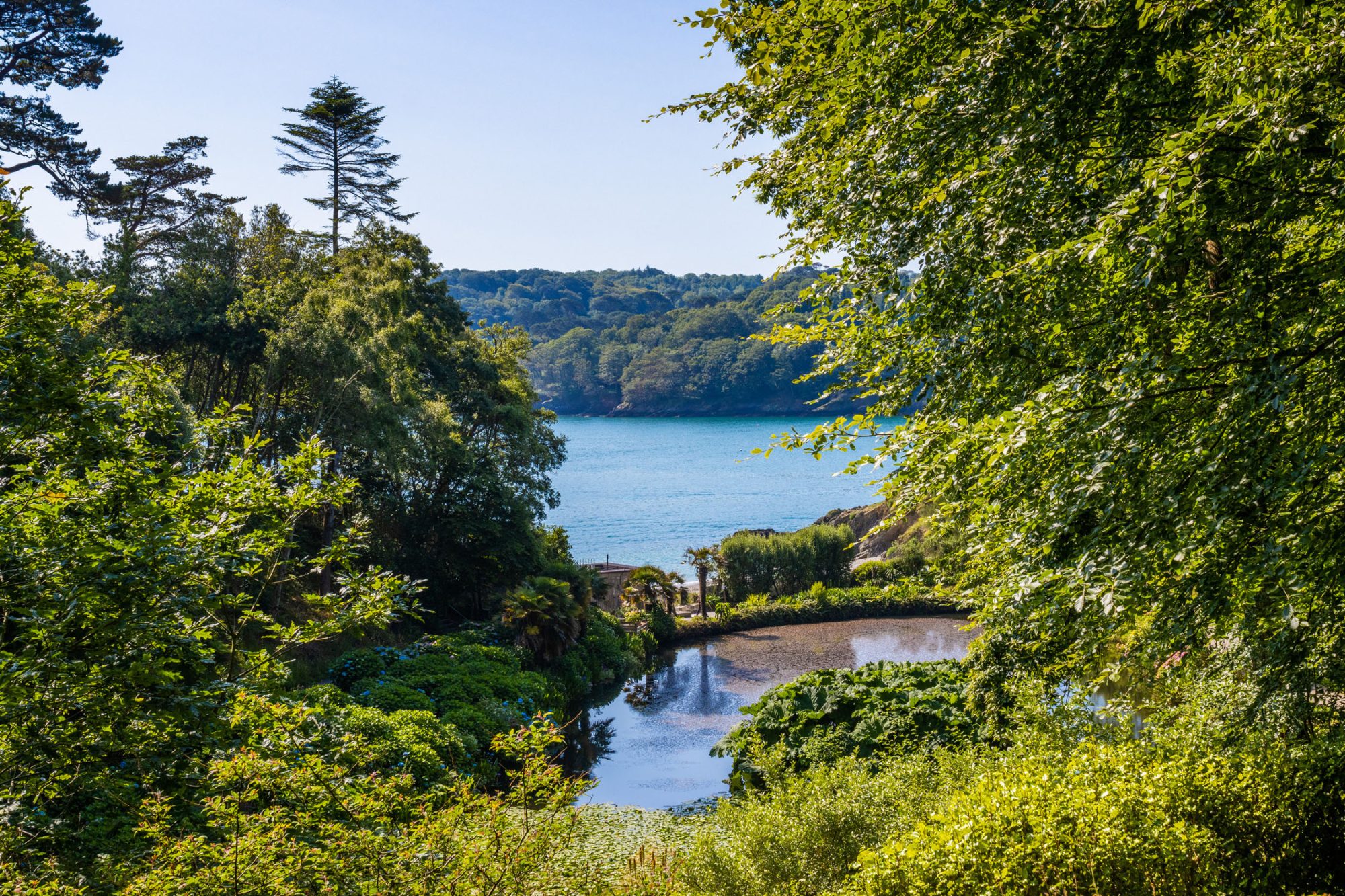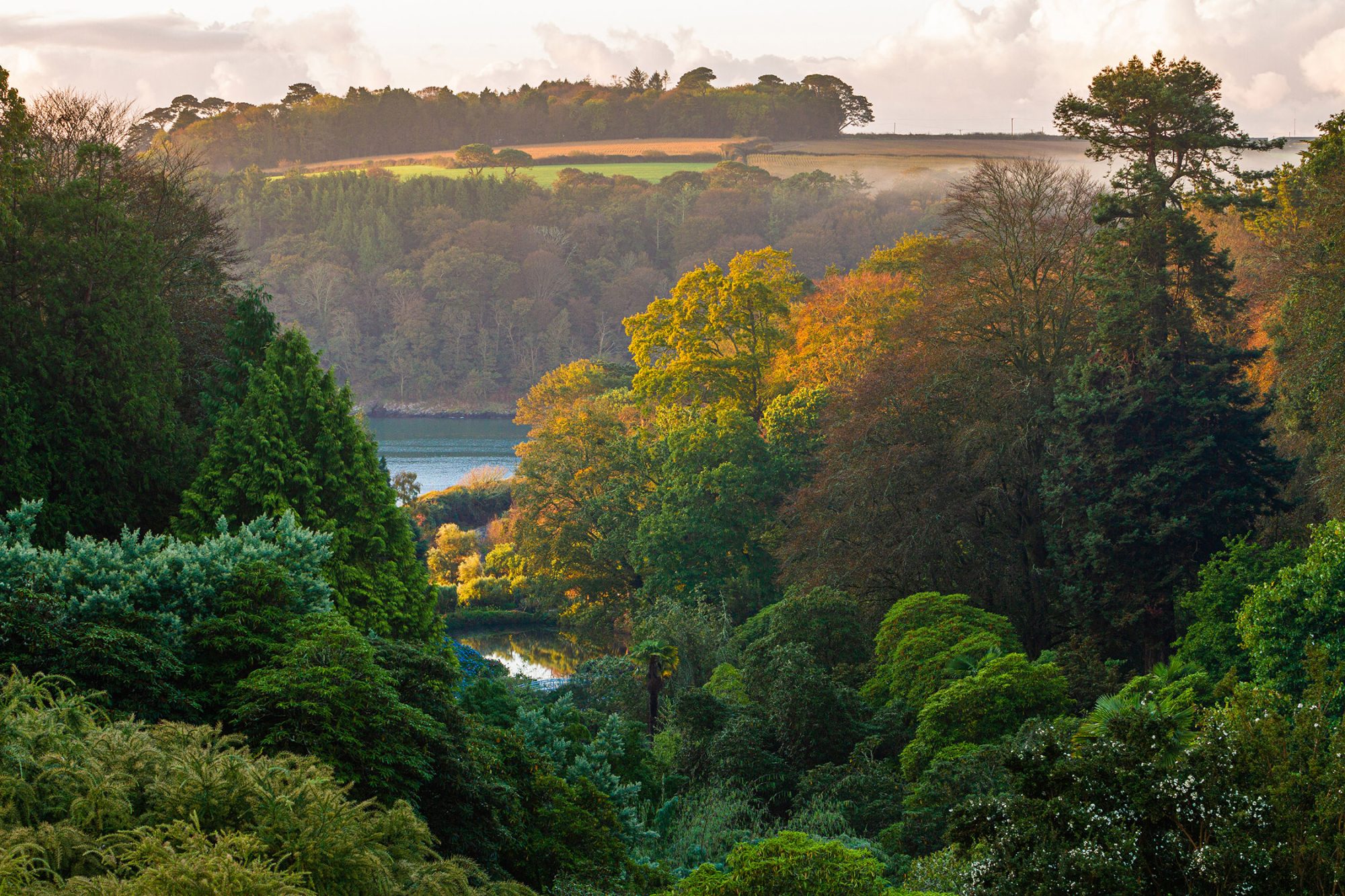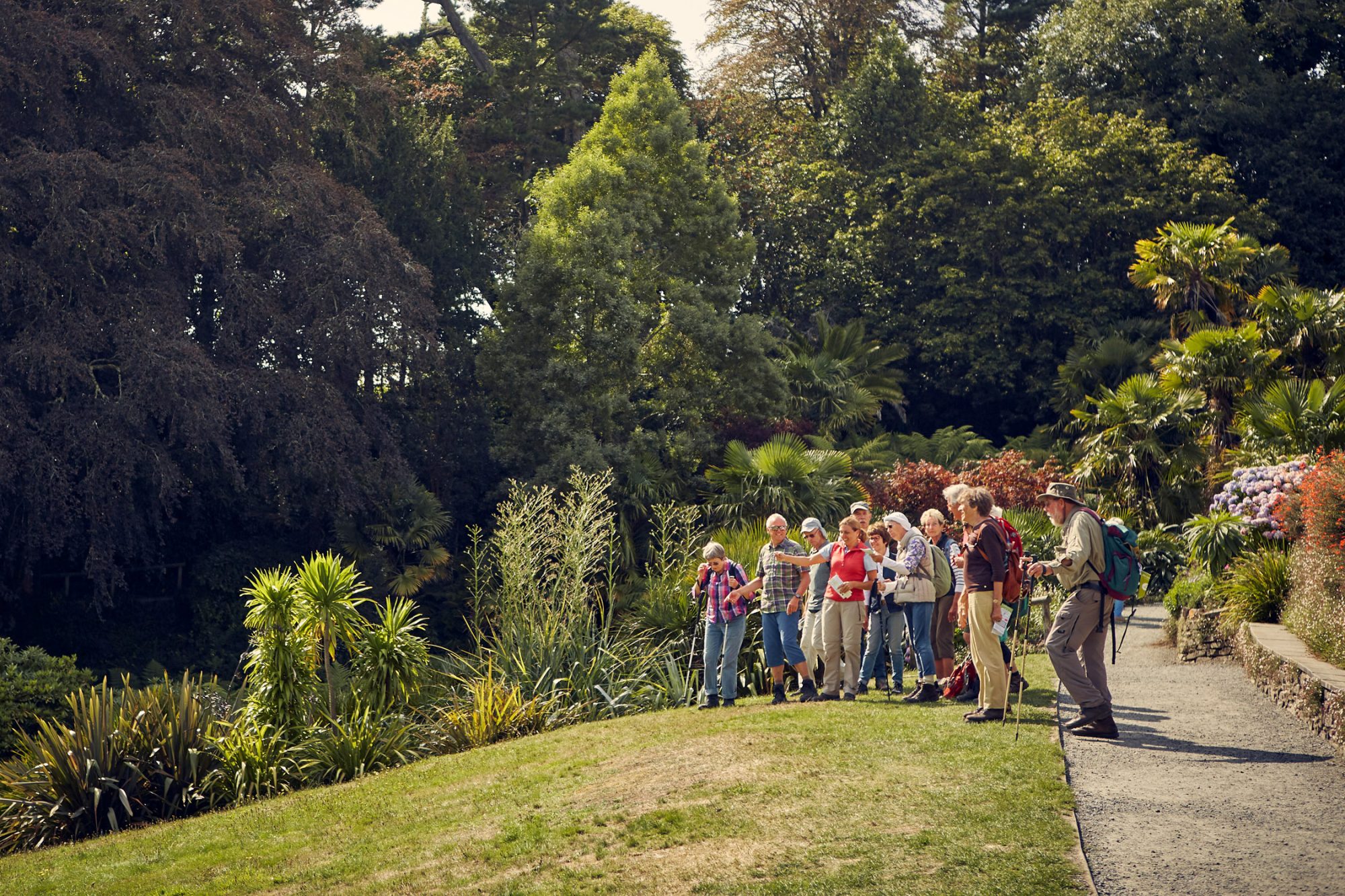Earliest Records
Trebah’s Earliest Records
Many families have owned Trebah throughout its history but have often taken documents and records with them when they left. As a result, details of Trebah’s earliest days are fragmented and sometimes hard to verify.
1313
Lawrence de Halap appears as a witness to a charter at Treveribou.
1327
Roger Trevraybou is listed as a taxpayer in the Constantine subsidy roll.
1538
Thomas Vela is listed as the tenant in socage, a type of feudal landholding, for Treveribo.
1695
Part of Trebah’s estate, Trebo Wartha, was sold to parliamentarian Lord Robartes of Lanhydrock. As a result, Trebah is recognised and included in The Lanhydrock Atlas.
1709
Trebah was sold by Thomas Langford and John Kessell of Manaccan to Richard Williams of St Keverne for the price of £331.
1728
Richard Williams passes away and his son James Williams inherits Trebah.
1758
James Williams passes away and his son William Williams inherits Trebah.
1762
William Williams passes away and his sister Prudence Williams inherits Trebah. Prudence marries John Nicholas in 1763.
1788
John Nicholas passes away and his nephew William Nicholas inherits Trebah.
1803
William Nicholas passes away and his nephew Peter Harris inherits Trebah
1831
Trebah is sold to the Fox family for £4375
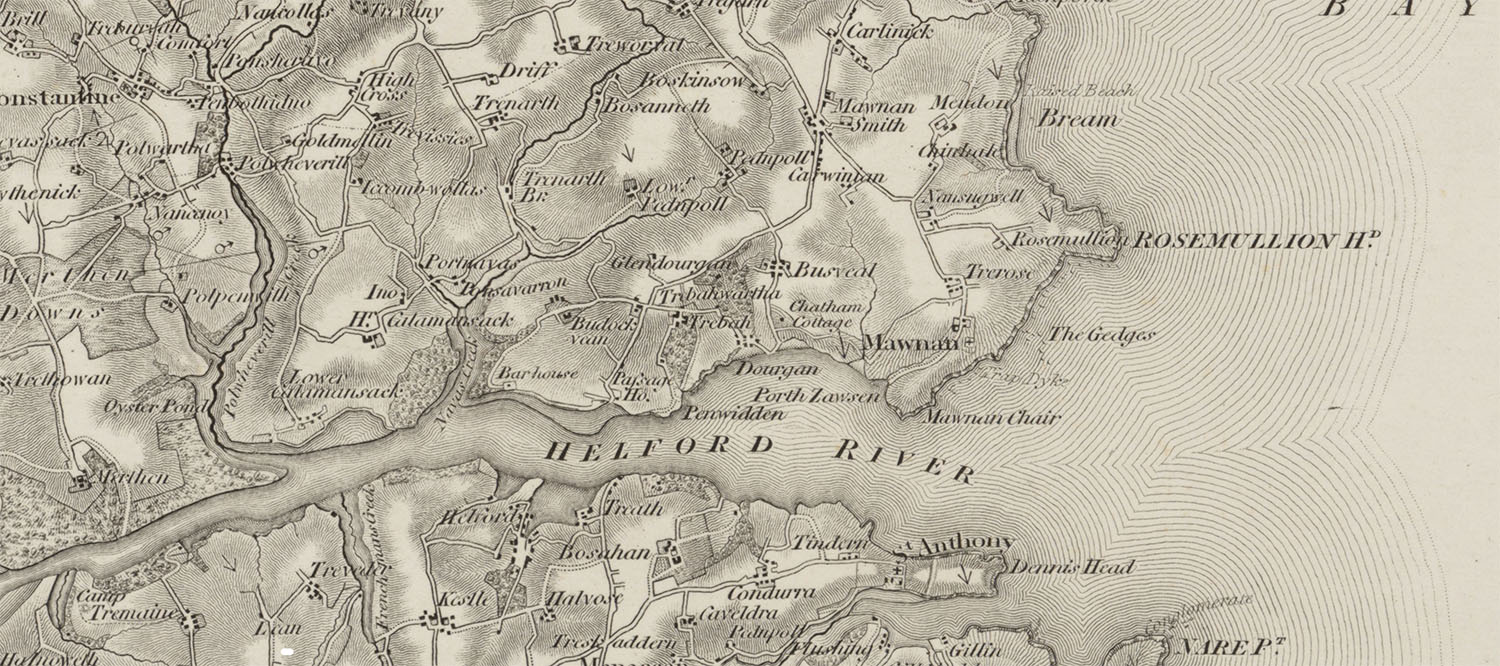
Abstract of Title
The oldest document in Trebah’s possession is an Abstract Title of Deed, dated 1764, which traces Trebah’s ownership by the Williams family from 14th July 1728 and then, by marriage, to the Nicholas family. Land is listed under the names Trebahwartha, Trebahwollas, Halline and Chycoose, which includes the valley, farm, neighbouring cottages and land towards Helford Passage.
It is thought that John Nicholas was responsible for building the main part of Trebah Farmhouse and constructing Trebah House, which still stands at the top of the valley today.

What’s in a name?
Variations of the name Trebah have existed for centuries and its exact origin remains uncertain. As with many place names in Cornwall, Trebah descends from Kernewek, or Cornish – a Celtic language. In Cornish Tre- means ‘settlement’ or ‘homestead’ and its suffix -bah is likely derived from a name.
In historical records references have been made to places thought to be Trebah, such as Treveribou, Treuribou, Treveribo and Trevraybo to name a few, but ultimately these are hard to verify with any certainty.
Trebah’s pronunciation has always been a subject of interest. In Cornish, the traditional pronunciation places the stress on the last syllable. Over time, however, the emphasis has shifted to the first syllable, resulting in the modern pronunciation of “Tree-buh” rather than the original “Tre-bahh.”
